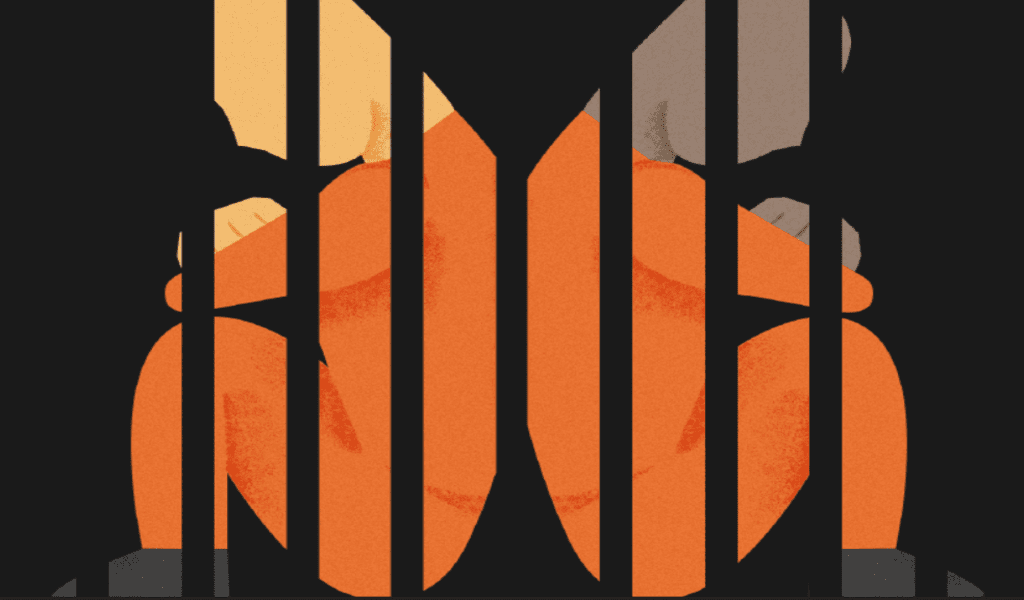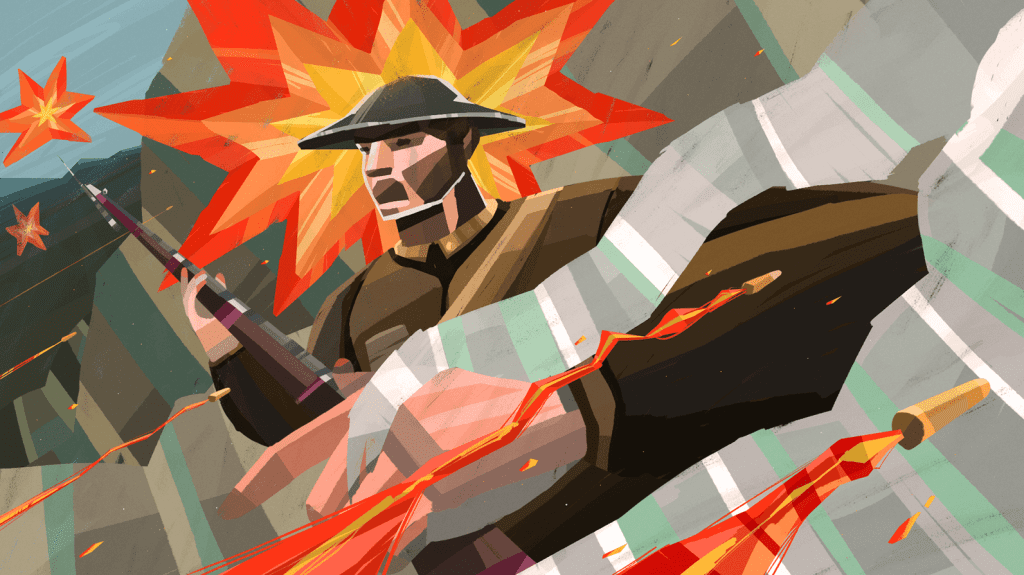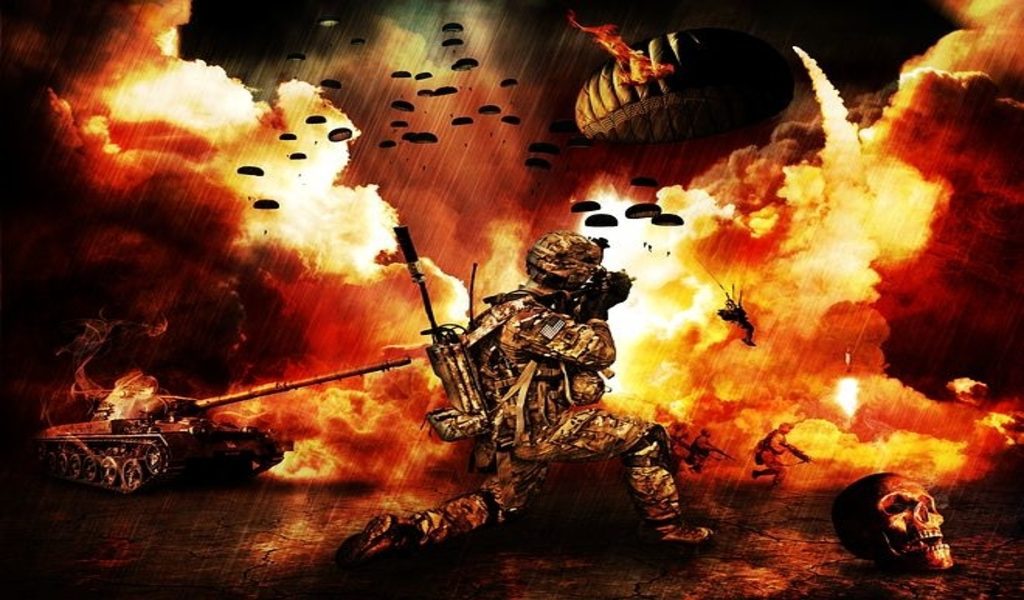
This study article seeks to present a complete picture of prisoners of war. After the World Wars, the cause of much chaos and death of many innocents, the necessity for solid standards in this area become even more urgent. International rules have to be modified to avoid future cases of basic human rights being hampered.
Following this, the Geneva Conventions for various time periods were drafted. This research paper also aims to explain why the Geneva Conventions need to be amended from time to time, as well as the important provisions of the treaty. The facts of the Indo-Pak war are examined in detail, as well as their relationship to the convention’s norms. Finally, there is the infamous case of Indian Air Force Wing Commander Abhinandan.
Who are the Prisoners of War?
Prisoners of war are civilians, military/paramilitary officials, and other prisoners that are held captive in war, usually by the victorious, other parties in an armed conflict. These detainees of war have human rights and cannot be subject to brutal treatment.
Prisoners of war, in the sense of the present Geneva Convention, are persons who have fallen into the power of the enemy and fall under one of the following categories:
Article 4 of the Geneva Convention III
- Members of a Party to the Conflict’s armed forces, as well as militias or volunteer corps that are part of those forces.
- Members of other militias and volunteer corps, including those of organized resistance movements, who are members of a Party to the Conflict and who operate in or outside their own territory, even if that territory is occupied, provided that such militias or volunteer corps, including such organized resistance movements, meet the following conditions:
- Regular military personnel who pledge loyalty to a government or authority that the Detaining Power does not recognize.
- Persons who accompany the armed forces without being members of the armed forces, such as civilian members of military aircraft crews, war correspondents, supply contractors, members of labor units, or members of services responsible for the armed forces’ welfare, provided they have received authorization from the armed forces they accompany, who shall provide them with a permit for that purpose.
- Members of the merchant marine and civil aviation crews of the parties to the conflict, including masters, pilots, and apprentices, who do not benefit from preferential treatment under any other provisions of international law.
- Residents of a non-occupied country who, upon the approach of invading forces, spontaneously pick up arms to resist the invading forces without having had time to create organized armed units, as long as they carry arms openly and follow the laws and customs of war.
Article 43 of the Additional Protocol I
All organized armed forces, groups, and units under a command answerable to that Party for the behavior of its subordinates, even if that Party is represented by a government or an authority not recognized by an adverse Party, constitute a Party’s armed forces in a fight. Such military forces will be subject to an internal disciplinary mechanism that will, among other things, ensure that the standards of international law that apply in armed conflict are followed.
Article 44 of the Additional Protocol I
Any fighter who falls into the authority of an adverse Party, as defined in Article 43, becomes a prisoner of war. It further states that a person’s violation(s) of international law relevant to armed conflicts will not deprive him of his position as a fighter or prisoner of war. During a military operation, however, if a combatant fails to distinguish himself from a civilian as required by Article 44, he forfeits his right to be held as a prisoner of war.
Historical Background

It is now recognized that the capture of hostages during or after conflict stems from a long-standing tradition, which still continues to this day. However, the difference is the legal protections for such prisoners. Earlier, prisoners of war were either massacred or enslaved and found themselves living under pathetic and brutal conditions. Protections now exist for such prisoners.
On the timeline, for example throughout the Middle Ages or the Renaissance, it is clear that the situation did not change greatly. There were several events occurring. For example, during the blockade of Paris in 464, people were begging the king to save the prisoners of war and to not slaughter or enslave them, but on the other hand, religious warfare was taking place with the primary goal of eradicating the opponent’s religion. Until recently, prisoners of war were treated as a form of personal property for the government that abducted them, however, this is no longer the case.
The current situation has altered. When officers were caught in France, they had to give up their swords, and they were granted certain privileges if they pledged to not be smart or flee when leaving the location where they were kidnapped. This is a marked change since prisoners of war are now provided humane treatment and are not merely ill-treated. The changes in the law are emblematic of a progressive mindset which demonstrates the evolution of societal belief.
World Wars and Armed Conflict
Another key aspect of Internal Humanitarian Law in terms of human rights dates back to World War I. The war was horrifying, and the Briand-Kellogg Pact of 1928 was signed after this shockingly unjust and deadly conflict.
An initiative was finally launched under this treaty to end and prevent any armed conflict, but another crucial factor that must not be overlooked was war in the event of self-defense. How will a person/state use its human right to self-defense if all conflicts are prohibited? As a result, after consideration among the participants, it was decided to outlaw all armed conflicts while leaving a tiny window open to protect the rights of nations and people to self-defense.
This, it appears, is why International Humanitarian Law has become such a vital aspect of international law. If there were no regulations guiding the military war between countries, he or she would not have been granted human rights, and mass killings of innocent people would have persisted.
Rights of a Prisoner of War
The Third Geneva Convention is currently the legal framework for dealing with prisoners of war. A notable feature of the convention, aside from its relevance to all other armed conflicts, is that it mentions internal battles. The convention defined captives in a way that included everyone who was likely to be captured during a conflict.
The Detaining Power bears the sole and main responsibility for the care of prisoners of war, not the individuals. The Detaining Power has a general obligation to treat detainees with humanity and to keep them safe. They must be supplied with food, clothing, and medical attention. They should be protected from public curiosity. They are also entitled to extensive due process protections, such as a trial by tribunals that adhere to the same norms of justice as courts that would try the detaining state’s military. Medical and scientific experiments are prohibited. Prisoners are to be treated alike regardless of race, nationality, religious beliefs, or political opinions.
At the time of detention, the prisoner is required to give minimum information. He is not to be subjected to torture and may retain his personal effects. Conditions at the detention camp must meet standards provided in the convention. The work that the prisoner is required to perform must not be inherently dangerous, humiliating, or directly connected with the operations of war.
The prisoner must be permitted contact with his family and correspondence privileges. Procedures must be established for registering complaints against the administration of the detention camp. Penal and disciplinary sanctions, including procedures for determining guilt, are prescribed by the convention. The convention also provides that the properties of prisoners shall not be disposed of them when arrested. When hostilities have ceased, POWs must be repatriated.
The convention develops the concept of a Protecting Power, which is appointed by mutual consent and is responsible for ensuring that the convention’s terms are followed. When the belligerents are unable to agree on such an appointment, the detaining power must request that the Protecting Power be replaced by a neutral state, an impartial organization, or a humanitarian organization. Each contracting party agrees to impose penalties on anyone who violates the set rules. Parties to the conventions are compelled to track out those who are suspected of violating them.
Many of the general provisions of the Third Geneva Convention on prisoners of war are integrated into the First and Second Geneva Conventions with regard to injured and sick armed men in the field or at sea.
According to Article 4 of the Geneva Convention and Article 44 of the Additional Protocol I, prisoners of war are entitled to special protection and care. Prisoners of War are given this particular status in recognition of the fact that combatants are operating in the best interests of their country, and they are entitled to protection once they are no longer in conflict. The treatment of prisoners of war is governed by provisions of international humanitarian law. Prisoners of War must be treated humanely, be decently housed, and receive adequate food, clothes, and medical care, according to the Geneva Convention III 143 Article(s). Its provisions also create labor, discipline, entertainment, and criminal trial rules.
General Protection of Prisoners of War
It should be remembered that prisoners of war are in the hands of the adversary, not the individual or military unit(s) that have taken them. Prisoners of war must be treated decently at all times. Any unlawful act or omission by the detaining power that causes death or seriously endangers the health of a Prisoner of War in its custody, including subjecting the prisoner to physical mutilation or medical or scientific experiment(s) of any kind that is not justified by the prisoner’s medical, dental, or hospital treatment and carried out in his interest, is prohibited and would be considered a war crime. Retaliatory measures against prisoners of war are forbidden.
Prisoners of war have the right to have their person(s) and honor respected at all times. Women will be treated with all deference due to their dignity and shall, in all situations, be afforded treatment equal to that accorded to males. Prisoners of war are entitled to preserve their full civil ability at the time of their captivity.
The State detaining Prisoners of War shall be bound to provide free of charge for their maintenance and for the medical attention required by their state of health. Regardless of color, nationality, religious belief, political viewpoint, or any other distinction based on similar characteristics, all prisoners of war shall be treated equally.
Specific Provision for Treatment of Prisoners of War in Captivity
When questioned about their identity, every POW is only required to disclose their surname, first name, and rank, date of birth, and army, regimental, personal, physical, or mental condition. If they are unable to do so, they will be handed over to the medical service. Prisoners of War may not be subjected to physical or mental torture or any other form of coercion in order to obtain information of any type. If a prisoner of war refuses to answer, he or she may not be threatened, humiliated, or subjected to any type of unpleasant or unfavorable treatment.
Officers and prisoners of equivalent status shall be treated with regard due to their rank and age. Personal belongings of prisoners of war, such as mental helmets, gas masks, and similar items issued for personal protection, must stay in the hands of the prisoners of war. Only weaponry, including arms, military equipment, and things of value taken from prisoners of war in exchange for money impounded will be considered.
The detaining power may limit a prisoner of war’s freedom of movement inside the confines of the prisoner of war camp. Insofar as the laws of the Power on which they rely allow, prisoners of war may be partially or fully released on parole or promise. No Prisoner of War may at any time be sent to, or detained in the area(s) where they may be exposed to the fire of the combat zone, nor may their presence be used to render certain point(s) or area(s) immune from military operation(s).
Indo-Pak war of 1971

Causes and Course of the War
The Partition was one of the most traumatizing events in the nation’s history and led to huge amounts of violence, bloodshed, and even nationalistic animosity between India and newly-formed Pakistan.
However, the new Muslim majority country of Pakistan was not a monolith and was divided into two halves: East Pakistan and West Pakistan. It was not possible to apportion the whole country in one single patch of land because the Muslim people were spread throughout India and not simply in a single belt. The issue was that East Pakistan’s Bengali Muslim community was dissatisfied and unhappy, believing it was not given attention by the country as a whole. Issues of identity-based discrimination and the imposition of Urdu on Bengali-dominant areas were further causes for dissatisfaction.
This eventually catalyzed a movement for independence, and the inhabitants of this region of Pakistan suddenly began seeking respect, recognition, and influence. Notable leaders also arose. Finally, after a sequence of atrocities and massacres, on March 26th, 1971, Pakistan army Major Zia-ur Rehman made the announcement of Bangladesh’s independence on the radio.
For many years, it was clear that India, the mother country, supported Bangladesh’s desire for freedom. India established several refugee camps in the East at various sites. Pakistan was visibly unhappy with India’s focus on the area and suspected that India intended to acquire it after partition. None of these opinions of the nation could stop India and so it welcomed a large number of immigrants, enabling them to enter the country.
Pakistan launched airstrikes on many Indian airfields, including Agra, and hoped this would deter India from entering the conflict wholesale. However, India’s Prime Minister, Indira Gandhi, made an on-air statement stating that the steps Pakistan took were an attack on the country’s prestige and willingness to fight, and thus India was ready and has raised the stakes in the conflict. The war began in earnest.
India captured a large number of PoW from Pakistan during the conflict and used their numbers during the negotiations as well. However, these refugee camps only existed for 13 days, and the prisoners were released after the surrender of the Pakistani armed forces occurred and the signing of the instrument of capitulation.
The Case of Wing Commander Abhinandan Varthaman
During an airstrike between India and Pakistan, Wing Commander Abhinandan was seized. The most important argument raised in this case was whether the Geneva Convention regulations apply in this situation because, in general, there was no notification of a formal war between the two countries. This concern was more pressing because the countries had ratified the Geneva Convention of 1949-51, which addressed issues such as the treatment of prisoners of war and what should be done if a prisoner is injured.
It was eventually decided that the Geneva Treaty’s standards would apply in this circumstance because Article 2 of the convention expressly specifies that the countries involved in a conflict do not have to be at war. This convention would most likely apply even if there was an armed confrontation between two countries. This plainly states that Abhinandan would be the responsibility of Pakistan under the Geneva Convention under any situation and that his interests could not have been harmed because anything incorrect would have been plainly regarded as a violation of the convention’s regulations.
Conclusion
The conclusion of this research work is that humanitarian law and human rights law are inextricably linked. Finally, the most important battleground for international humanitarian law is the protection of individuals’ basic rights in the event of armed conflict, because no matter what the circumstances between two countries are during a state of war or armed conflict, the rights of the people living in those countries cannot be abridged, and their safety and well-being cannot be jeopardized. Furthermore, the Geneva Conventions make it clear that simply because officers of the armed forces are involved in a war doesn’t imply they don’t have their own rights.
Once the war is declared legally concluded, it is the obligation of both warring parties to ensure that everyone, regardless of their status, is safeguarded and that nothing illegal occurs at any cost. It is in the best interests of the world if all of the Geneva Convention’s rules are adhered to. The world’s peace and harmony will remain as long as the general public of various nations is respected and protected.